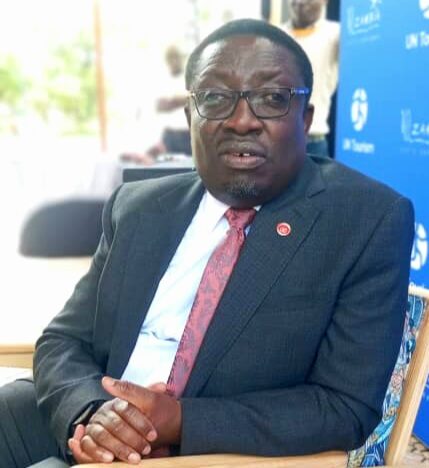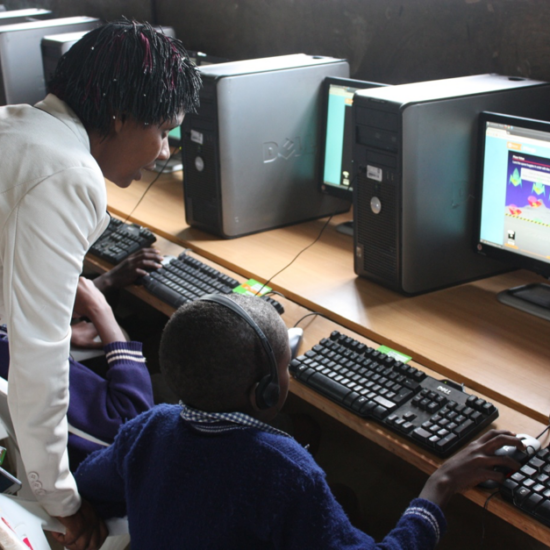Education expert Rozious Siatwambo has attributed the poor percentage score in mathematics among all subjects to the overreliance on technology by the learners rather than developing one’s own problem-solving skills.
According to official statistics, there’s no denying that math scores are a cause for concern as they have been declining over the past few years, with some experts predicting that this trend is likely to continue.
The 2023 School Certificate (Grade 12) examination results highlights revealed that mathematics recorded the lowest mean percentage score among all subjects down to about 26% from about 28% recorded in 2022 which is a worrying trend, as Mathematics is one of the core subjects and critical for many fields of study.
According to the 2023 School Certificate (Grade 12) Examination Results Highlights seen by the Zambian Business Times – ZBT, mean percentage scores ranged from 26.62 percent in Mathematics to 70 percent in Food and Nutrition, almost similar to the range of 27.51 percent in Mathematics to 70 percent in Food and Nutrition in 2022.
Speaking in an exclusive interview with ZBT, Dr Siatwambo who is also the owner of the Great North Road Academy, said the overreliance on technology by most students is hindering the development of their problem-solving skills, leading to dull math performance.
Asked what can be done to reverse this trend? Dr Siatwambo suggested that schools need to place a greater emphasis on teaching problem-solving skills and critical thinking while calling for a reevaluation of how technology is used in the classroom.
Dr Siatwambo noted that technology has become so universal in modern life that it’s easy for students to rely on it even when solving simple maths problems instead of developing their own problem-solving skills. He argued that students need to be taught how to think critically and solve problems without relying on technology such as a calculator, and that this is especially important when it comes to math.
“The major factor that has made the continued decrease in the performance of mathematics is the coming of technology technological advancement where people are now moving away from reliance on the brain and now relying on technology.”
“If you check around you find that even simple mathematics people want to get to the calculator and calculate so there has been so much reliance on technology and this has lobbed even learners of creativity where they can no longer solve even big problems.”
Dr Siatwambo added that the other factor has to do with the usual factor where maths is considered to be a difficult subject over a longer period which has worsened now by the introduction of technological advancement because even simple things someone would want to revert to a calculator.
When asked about the argument around maths being taught in the English language when statistics also show that most learners do not understand the English language hence the drop in maths performance, Siatwambo said, “every subject is very important because even mathematics itself if one does not understand English then they can interpret the mathematical concepts so for its very critical and subjects like literature they help us be analytical enhance even the issue of analyzing the issue and even coming up with a situation which is critical in this age and era we one need to be a critical thinker and also analytical for them to survive and to manage the number of aspects on the number of the economy.”
“For me English is quite critical because if one cannot interpret, read, and understand English it goes even to mathematics, and also a drop in English performance is attributed to the same technological advancement, if you look at society now people barely read people don’t read they have stopped reading now they just read one line even on social media you can post something then the people will only read the first one or two lines then they conclude.”
“So we are now in an era where people are too lazy to read they can’t read but they would rather just pick a concept and make a conclusion out of it and then they move on and it also tells a story of the society that we are living in I think our society is now too busy people are now too busy their minds are now too busy to grasp information, busy with the happening around social media as most people are now glued to social media and because they are busy they want to know what is happening everywhere.”
“We need to go by times, the time that we are living in now as an educationist from our end It is good that this question is coming to me as the director of Great North Road Academy so we are alive to times we are living in now and one of the things we have done especially to our learners now because the foundation stage is quite critical if you are heading to secondary.”
“So what we have done is we have introduced subjects within the subjects of the ministry we have introduced programs that are aimed at sparking curiosity, objectivity, and analytical in terms of thinking and there are so many programs that we have introduced including an abacus where we make learners calculate mathematics faster than a computer.”
“So there is a daily program where learners add and calculate without a calculator so we are seeing that the more we do this it enhances analytical thinking, critical thinking, confidence, and creativity apart from that also we need to change our style of teaching so that it can be in tandem with the world that children are living in like I have given on our part we have introduced now exploring the future the subject that is being taught where everyone is learning about all these robotics and so it’s interesting.”
“So it will require that we change our curriculum I know there is a new curriculum that has been worked on but unfortunately, if you look at it it will take almost 4 to 5 years they are just working on it, and it will pilot for the next 5 years of which the world could have moved to the other stage by then.”
However, Dr Siatwambo also highlighted the need to change the style of teaching to be in tandem with the world that children are living in. “The education system needs to change its curriculum to keep up with the rapid advancement of technology and the changing needs of the world. While there is a new curriculum in the works, it will take almost four to five years to pilot when the world could have moved to the other stage by then.”







